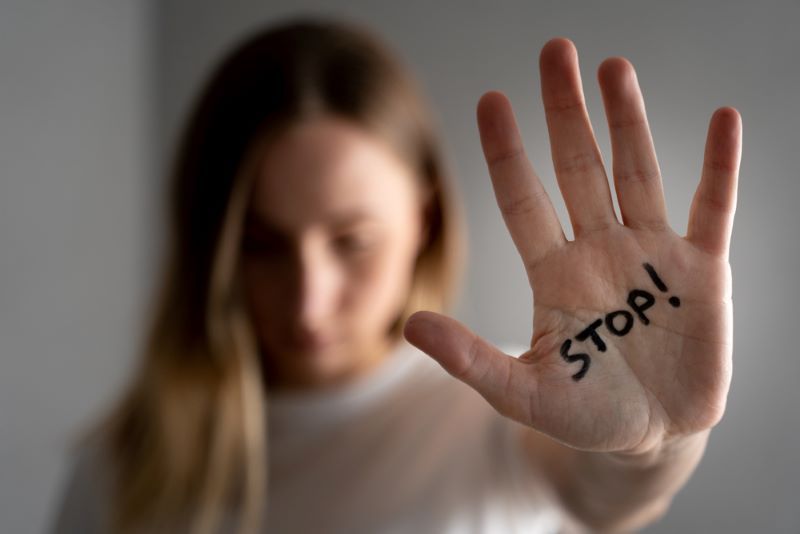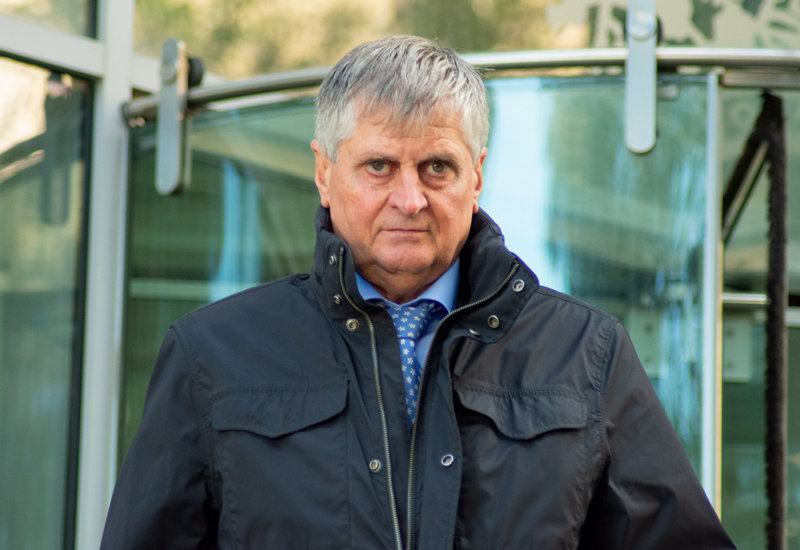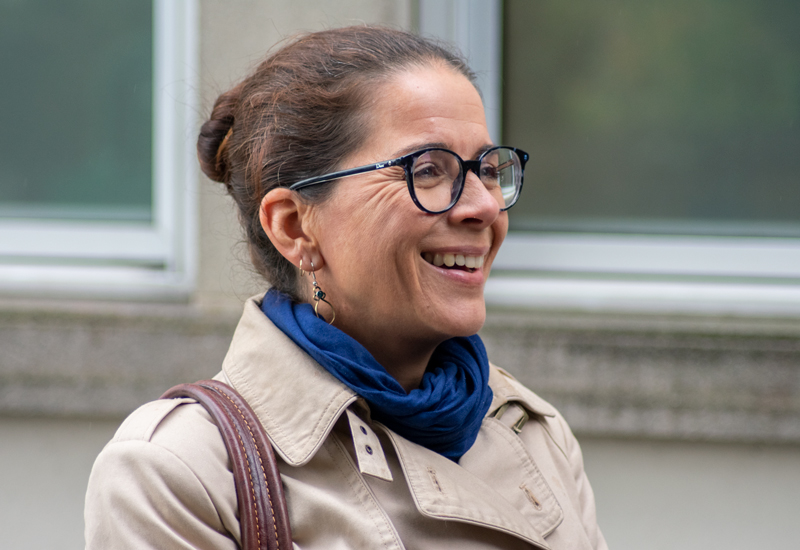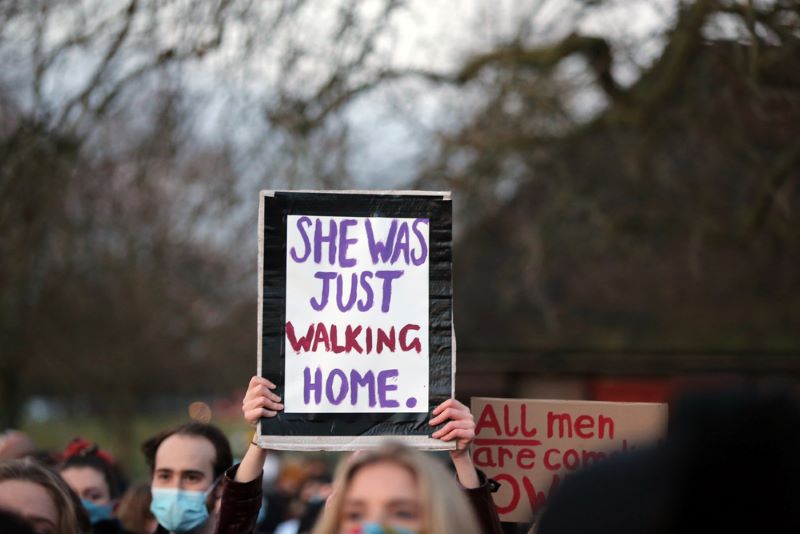


The States’ committees responsible for justice policy and education say they want to “instigate a culture change across the community” on sexual violence and abuse.
The President of the Committee for Home Affairs, Deputy Rob Prow, says that working with schools is central to his Committee’s objective to promote awareness and reduce the incidence of sex crimes and unacceptable behaviour.
“My Committee has been looking at a range of initiatives we can undertake to raise awareness of sexual violence in our community. It was clear to us that educating young people about attitudes and behaviours linked to this issue would be key," said Deputy Prow.
He said he was "extremely encouraged" by work being done today, but he and his colleagues "are looking to instigate a culture change across the community and have been speaking to our colleagues in Education about what more can be done.
“I am pleased to be working with them to develop a new event which will hopefully help highlight much of the hard work that already goes on and look forward to speaking more about this in the future.”

Pictured: Deputy Rob Prow, President of the Committee for Home Affairs, says that educating children is essential to raising awareness of sexual violence and abuse.
The Committee for Education, Sport & Culture says it is “confident that this is a priority area for staff across education” after it asked Education officials to review how schools deal with education about sexual abuse following a national report on the issue by the schools’ inspectorate Ofsted.
“I must express my thanks to Deputy Gavin St. Pier who approached me in the early autumn following the summer publication of the Ofsted report in the UK with questions about what we do in Guernsey to tackle sexual abuse in schools and how we educate young people on this very important issue,” said Deputy Andrea Dudley-Owen, President of the Committee for Education, Sport & Culture.
“It is an issue that is prevalent in the minds of all of us on this Committee. I’m sure much of the Assembly would agree with me that it is something that must have strong systems in place to both tackle and prevent [and] to support wider cultural changes. I was pleased that Deputy St. Pier’s questions gave us the opportunity to talk about the huge amount of work that goes on through Education, and more widely across the States of Guernsey, in this area.
“The Committee is confident that this is a priority area for staff across education, who are driven and passionate about both ensuring our policies and procedures are as robust and as up to date as they can be and importantly making sure our young people are educated about acceptable behaviours, whilst feeling supported.
“As with many areas of education, it is of course not the sole responsibility of staff to ensure these important messages land and are re-enforced. It takes a whole community effort to ensure appropriate cultures are in place, and [it is] especially important for parents to take a lead in speaking with their children about such important issues, especially now with the far-reaching and sometimes negative influence of social media.”

Pictured: Deputy Andrea Dudley-Owen, President of the Committee for Education, Sport & Culture, says that schools and parents must work in partnership to raise awareness of sexual violence and abuse.
In September, the Safeguarding and Child Protection Policy was updated in States’ schools. In October, additional training was provided to safeguarding leads in schools.
Schools have received various awards under UNICEF’S Rights Respecting School scheme, which promotes children’s rights and educates children about their rights.
Earlier this year, schools adopted ‘Just BE LADS’ lessons, which were designed by local campaigner Poppy Murray to help raise awareness of sexual violence and assault in ways which unite rather than divide men and women.
Ofsted’s national report referred to by Deputy Dudley-Owen was published in June. It followed a review involving 32 schools and colleges and discussions with over 900 children and young people. Ofsted said its review “revealed how prevalent sexual harassment and online sexual abuse are for children and young people”.
“It is concerning that for some children, incidents are so commonplace that they see no point in reporting them," said Ofsted.
“On our visits, girls told us that sexual harassment and online sexual abuse, such as being sent unsolicited explicit sexual material and being pressured to send nude pictures, are much more prevalent than adults realise. For example, nearly 90% of girls, and nearly 50% of boys, said being sent explicit pictures or videos of things they did not want to see happens a lot or sometimes to them or their peers.

Pictured: The prevalence of sexual assault and violence - especially but not exclusively against women - has received more attention in 2021 as a result of campaigns and protests when a policeman raped and murdered Sarah Everard after kidnapping her while she walked home from a night out in London.
“When we asked children and young people where sexual violence occurred, they typically talked about unsupervised spaces outside of school, such as parties or parks without adults present, although some girls told us they also experienced unwanted touching in school corridors.
“Children and young people, especially girls, told us that they do not want to talk about sexual abuse for several reasons, even where their school encourages them to. For example, the risk of being ostracised by peers or getting peers into trouble is not considered to be worth it for something perceived by children and young people to be commonplace. They worry about how adults will react, because they think they will not be believed or that they will be blamed. They also think that once they talk to an adult, the process will be out of their control.”
Comments
Comments on this story express the views of the commentator only, not Bailiwick Publishing. We are unable to guarantee the accuracy of any of those comments.